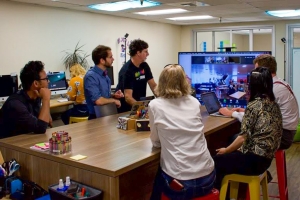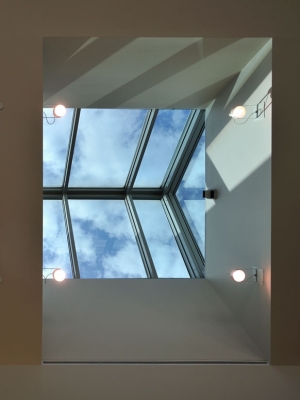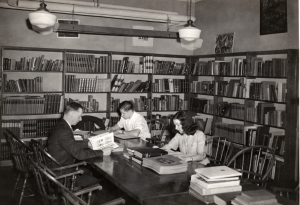Digital Humanities
Middlebury College’s engagement with Digital Humanities began over two decades ago.
Around 2000, expert staff at the Library’s Special Collections worked to digitize the College’s rich archives of historical texts, manuscripts, and photographs, both for community access and public usage.
By 2005, the Library had a full-fledged, full-text, searchable digital archive with photographs, maps, and historical texts.
Today, the Axinn Center for the Humanities continues in this long tradition by supporting various projects in Digital Humanities through its own unique programming and through collaboration with multiple partners across our campus. Projects embedded in Digital Humanities, and also within Computational Humanities, broadly consider the relationship between humanistic work and technological tools and platforms.
Our collaborative partners who are helping support this work across campus include:

Digital Learning & Inquiry (DLINQ)
Middlebury’s Office of Digital Learning and Inquiry (DLINQ) explores and creates digital practices and spaces that advance the transformative potential of education in students’ lives, and advances digital fluency and critical engagement with the digital at Middlebury. The office has worked closely with the Axinn Center in planning and implementing digitally-facing Public Humanities Projects.

midd.data
midd.data provides equitable and inclusive access to powerful technological tools, develops the skills to apply them across disciplines, and supports the critical exploration of their possibilities and promise.

MiddLab
MiddLab is a hub for library and other specialists to share insights, develop working collaborations, and help plan for the maintenance, development, and support of the technical infrastructure and services required for digital scholarship, digital projects, and other technology-based academic research, digital dissemination, and digital preservation at Middlebury.

Digital Special Collections
Digital Special Collections include born-digital and digitized materials such as photographs, newspapers, maps, student academic work, Middlebury websites and social media, and other archival materials.

